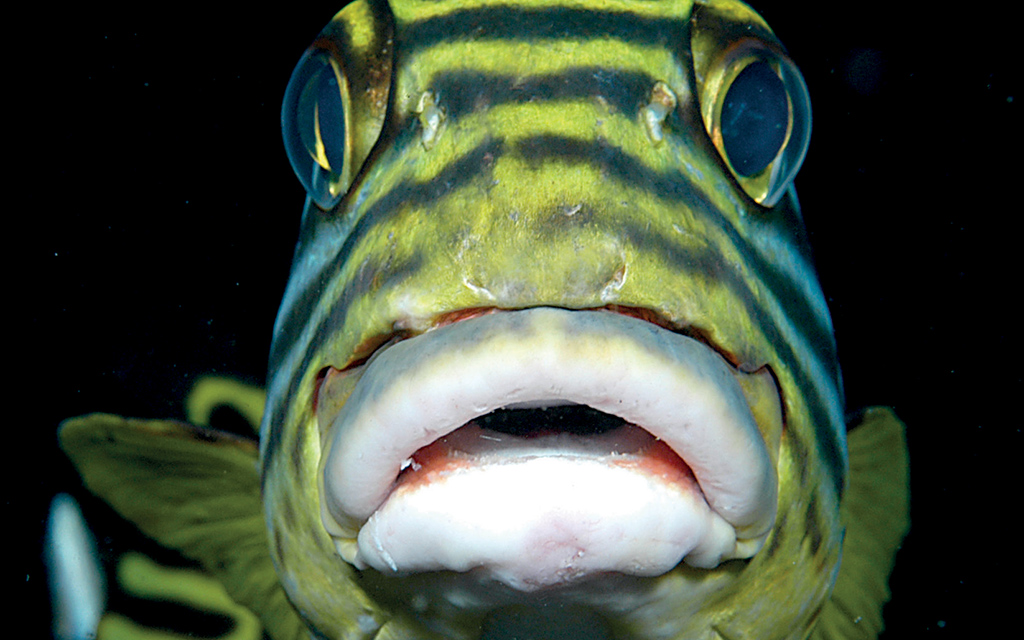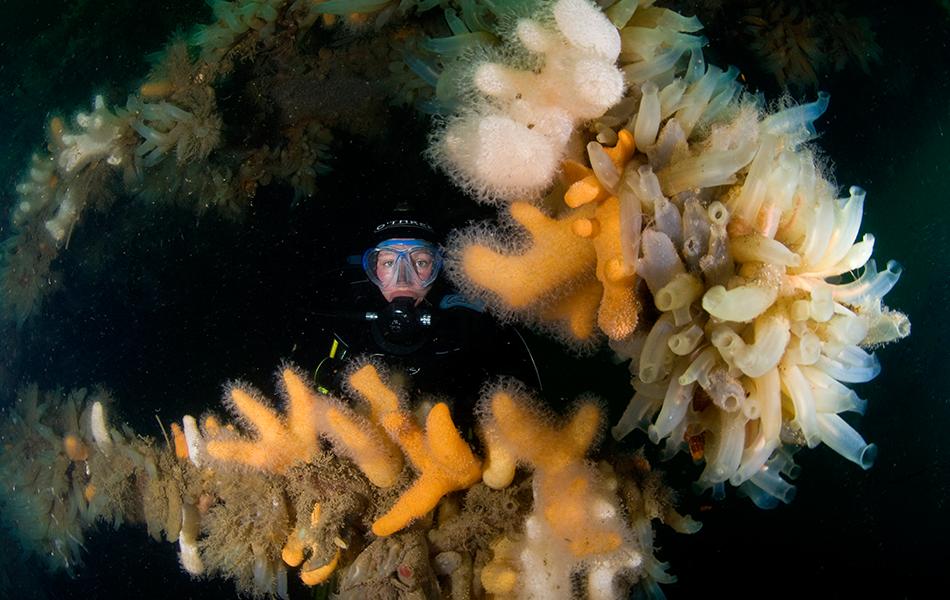
After considering the intelligence of marine mammals, in her latest article Becky Hitchin considers if we have been underestimating the brain power of fish.
Everyone of a certain age will remember coming home from a fair, a goldfish in a plastic bag held tight in a small sticky hand, and asking their frazzled parents whether the goldfish got bored swimming round and round. The answer was always that goldfish have a memory of three seconds, so every time they swam round the tank it would be a new and exciting experience.
Unsurprisingly, that’s not true. Researchers are starting to believe that fish are actually quite clever.
Unlike their larger watery relatives, the marine mammals, fish don’t have large brains. However, some fish have brains that can undertake different tasks in both the left and right hemispheres, like dolphins and humans. In laboratory tests, fish have outperformed monkeys, chimpanzees, and orangutans on some complex foraging tasks, and sharks have been able to differentiate shapes like squares, triangles, and rhomboids.
Fish have also been shown to be able to keep track of time and quickly predict the timing of feeding events – faster even than rats have been shown to do. Long-term memory in fish also seems possible. Rock-dwelling gobies have been shown to remember how to get back to their home pools when they were moved nearly 100 feet to another location – even after a month. Sharks have also demonstrated memory retention of up to 50 weeks.
fish don’t have large brains. However, some fish have brains that can undertake different tasks in both the left and right hemispheres, like dolphins and humans
Goldfish, in absolute opposition to the three second belief, appear in experiments to be able to remember the colour of feeding tubes for up to a year. Catfish can even remember food calls from specific human beings up to five years after they last heard them.
Another way of suggesting intelligence is the use of tools. This would seem to be quite tricky for fish, with no fingers or thumbs to manipulate their environment. However, tuskfish use coral and rocks to break open shellfish to eat, while wrasse use rocks to crack open their sea urchin meals. There have even been experiments where certain species of cod learned to pull a string for food to be dispensed.
Fish can also do maths. Mosquito fish can count up to five and have also shown an understanding of mathematical ratios. Angelfish can also reliably count to five and use ratios to choose between larger groups, while cichlids and stingrays can perform basic addition and subtraction. Newborn guppies can count up to four, but seem to learn ratios later as they mature.
But there’s one type of fish I particularly want to namecheck, and that’s the cleaner wrasse. These remarkable little fish have not only shown intelligence, but, along with manta rays, have also passed the ‘mirror’ test, the standard test for self-awareness in animals. In a mirror test, an animal is sedated and something is changed on their body. When they wake up, researchers watch to see if they notice what has been changed.
When put through the mirror test, fish with an added coloured tag attached to their body attempted to scrape off this tag by scraping their bodies on the side of the mirror. Cleaner wrasse also have social interactions, both among cleaner fish in a population and between a cleaner fish and its clients. Cleaner fish approach the client fish in pairs, and face a social dilemma: they must balance helping their partner with sneaking around to consume the desired mucus themselves. Social pressure plays a role in ensuring good behaviour — when there is a third fish observing them, cleaner fish tend to behave more cooperatively.
Fish are just amazing, even the small ones.
Article ‘Intelligence in the sea - part 2’ by Becky Hitchin first published in SCUBA magazine, Issue 138 September 2023.

 Author: Becky Hitchin | Posted 28 Sep 2023
Author: Becky Hitchin | Posted 28 Sep 2023



